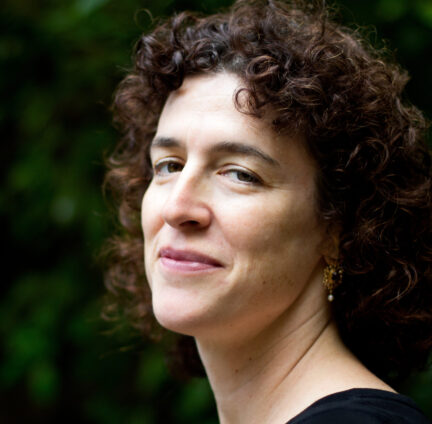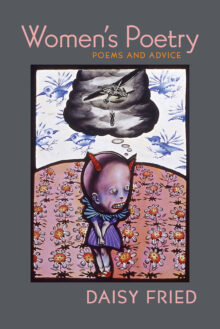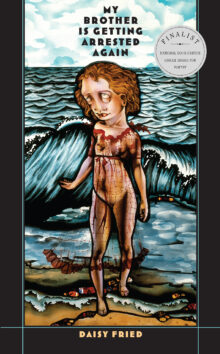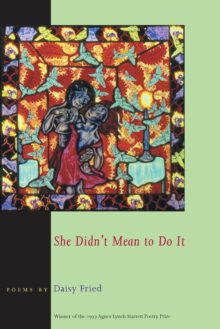

Daisy Fried
Daisy Fried is the author of My Brother Is Getting Arrested Again, a finalist for the National Book Critics Circle Award, and She Didn’t Mean to Do It, winner of the Agnes Lynch Starrett Poetry Prize. She has received Guggenheim, Hodder, and Pew Fellowships, a Pushcart Prize, and the Cohen Award from Ploughshares. Fried reviews poetry books for the New York Times, Poetry, and the Threepenny Review and was awarded Poetry magazine’s Editor’s Prize. She has taught creative writing at Bryn Mawr College and in Warren Wilson College’s low-residency MFA program. Fried lives in Philadelphia, Pennsylvania.
Women’s Poetry
Poems and Advice
Daisy Fried’s third book of poetry is a book of unsettling, unsettled Americans. Fried finds her Americans everywhere, watching Henry Kissinger leave the Louvre, trapped on a Tiber bridge by a crowd of neo-fascist thugs, yearning outside a car detailing garage for a car lit underneath by neon lavender, riding the train with Princeton seniors who have been rejected by recession-bound Wall Street, feeding stray cats drunk at midnight, bitching at her mother in the labor room, shopping with wide-bodied hunters for deer-dismembering band saws in the world’s largest supplier of seasonal camouflage, cursing her cell phone and husband at eighty-five miles an hour, hiding behind the mask of an advice column to proclaim Charles Bukowski “America’s greatest poetess.” There is nothing like this book, because there is nothing in it but America. No comfort, no consolation, no life-affirming pats on the back, no despair about God, no fear or acceptance of death, no irrational exuberance, no guilt or weariness, no misery even in the middle of personal and political crisis. Plenty of humor and plenty of seriousness. Joy. And a new kind of poetry: not nice, but rich and real.
My Brother is Getting Arrested Again
My Brother Is Getting Arrested Again celebrates the contradictions and quandaries of contemporary American life. These subversive, frequently self-mocking narrative poems are by turns funny and serious, book-smart and street-smart, lyrical and colloquial. Set in Philadelphia, Paris and New Jersey, the poems are at ease with sex happiness and sex trouble, girl-talk and grownup married life, genre parody and antiwar politics, family warfare and family love. Unsentimental but full of emotion, Daisy Fried's new collection, a finalist for the 2005 James Laughlin Prize, is unforgettable.
She Didn’t Mean to Do It
Winner of the 1999 Agnes Lynch Starrett Poetry Prize The thirty-three narrative, linguistically-adventurous poems in She Didn’t Mean To Do It range freely among styles and voices. Examining human emotions and behavior in all their contradictions, Daisy Fried turns a perceptive eye on those around her. Fried integrates metaphoric flights and idiosyncratic narrative, surprising us with the details—”I saw that the wisteria/in dusk its same color hung (heavier than/the breasts of stabbed and stabber ever would be)”—while her characters traipse across lines and pages. These are poems about human relationships, mostly romantic and sexual. They’re also about jobs and work: urban, action-packed and socially aware.



